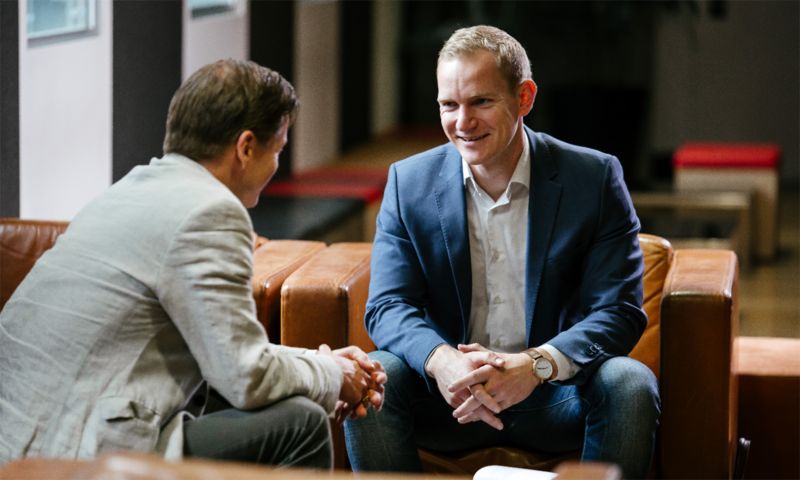Acutely aware of the demanding nature of senior management roles, Paul Kubik decided to hone his skills and stay ahead of the game with postgraduate qualifications in business and marketing.

While still working full-time, Paul completed the Executive Master of Business Administration, which he chose to get a better understanding of the theory behind the practice.
“Having been in a management position for the better part of a decade, the EMBA was a great way to formalise a lot of that knowledge with theory. It was also great for introspection and self-reflection, it helped me to understand my own personal strengths and weaknesses around management,” he said.
He said the breadth of business areas covered in the program also exposed him to disciplines he hadn’t previously considered advantageous to pursue alongside his engineering career.
“They give you this broad canvas of topics and one that really interested me was marketing. My background is more from a technical side in electrical engineering. The EMBA and marketing is probably the furthest away from that as you can get.”
Having experienced the value of further education gained through the EMBA, he decided to continue studying after graduating, further specialising his skillset with the addition of the Master of Marketing.
“It’s very much a creative approach to problem solving, which is a great way to diversify some of my skillsets.”
Working with Life Education Australia was one of Paul first, and most useful, industry projects. With fellow students, he devised a marketing plan for the not-for- profit organisation.
“We did interviews with teachers as well as people from their volunteer base and presented a set of recommendations to Life Ed, some of which were adopted to the extent that they then offered us some small consulting roles,” he said.
“That was a good example of linkage through to practice, through to an actual business outcome and a job opportunity, real industry experience for some of the students.”
Another industry-based project with Australia Post was just as valuable. Students developed a marketing strategy for the company’s Digital iD identity verification technology.
“That example was great because it was working with a large corporate, it was a real product and it was in market several months after we finished the assignment,” Paul said.
Completing two masters programs has helped Paul enhance his skills in the product development space, particularly in design thinking.
“There’s three competencies in a product development space I think the market is asking for - a technical background, the business side and then the marketing aspect,” he said.
“If you take those three lenses to product development you have a good balance of skills and can remove a lot of biases of being too technical or too inwardly focused.”
Paul said he recommends the EMBA as essential tool for managers looking to formalise their knowledge and the Masters of Marketing for those looking to develop their skills around product innovation.
You may also be interested in:
Find the right course for you
With over 350 qualifications to choose from, it's never been easier to find the right fit.


